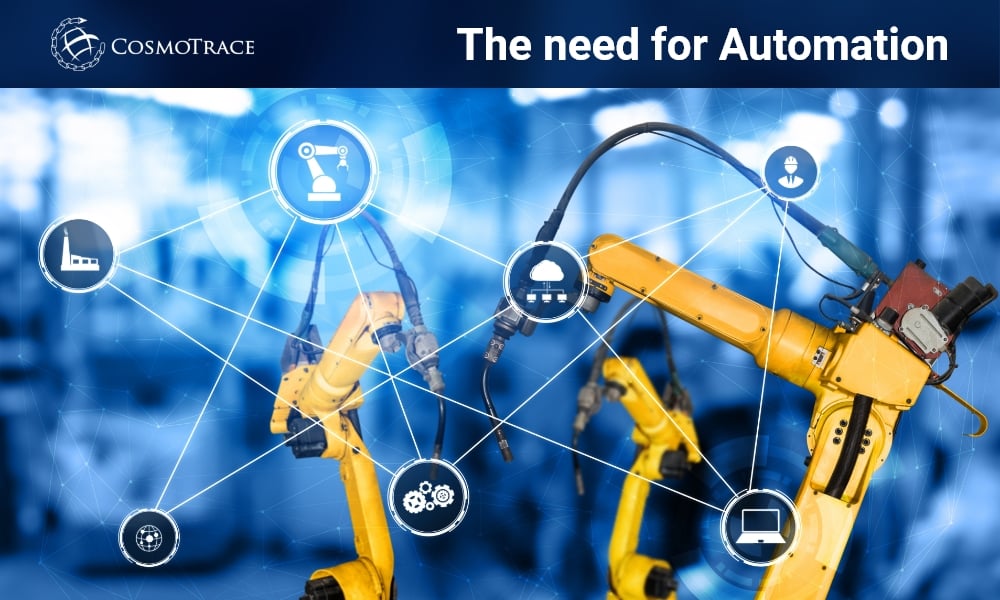Automation has revolutionized manufacturing by boosting production levels to meet increased demand in all industries.
The pharmaceutical industry is no exception. The increased demand for vaccines for example has forced many pharmaceutical companies to do more with less resources.
The pharma industry has increased the deployment of automation in all areas of manufacturing with an intent to reduce inefficiencies, reduce processing time and enable simultaneous processing.
Robotic advancements have reduced errors and optimized the supply chain to handle increased production levels. There is potential of machine learning algorithms to automatically adjust manufacturing lines in a self-healing process.
Industry 4.0
The latest iteration in manufacturing referred to as industry 4.0 extends the capability of the supply chain to include non-supervised devices capable of taking programmed decisions and corrective actions without the need of a human operator. This greatly enhances the production lines and supply chain disruptions.
Machine learning algorithms also provide an opportunity to identify and correct issues before they happen based on past data analytics. For example, if a gauge malfunctions, then machine learning automation algorithms can trigger corrective behaviors automatically.
Benefits of Robotic Automation
Robots also use lesser space and since the possibility of failure is lesser, there is comparatively reduced production downtime and no labor turnover. Usage of robots on the production floor also provides enhanced health and safety and better waste management.
In addition to the above-mentioned benefits, robots also provide increased production flexibility, improved production output and product quality while ensuring lower operating costs
Robots have increasingly been used for bin picking of syringes using 3D technology to guide them. Using this the robots have been programmed to pick up syringes imitating a human action but faster and more efficient preventing collisions.
Smart Devices and IOT
Smart devices provide real time analysis of machinery’s health performance and production status.
IOT devices are removing the speculation of inventory movement in the supply chain making effective prediction possible.
Automation processes dubbed as digital twins provide parallel processing automation paths for production systems allowing productions systems to be configured in the cloud where users can plug into the database and deploy the replicated system on a new production line without the need of validation
Though the pharmaceutical industry is slow to adopt quick changes because of regulatory constraints, nevertheless automation is making it’s way inside the pharmaceutical industry as it has the potential to greatly speed up the manufacturing of fast-moving drugs.
The need to produce vaccines at an ever-faster rate is the need of the hour and automation helps a great deal in achieving this.
At CosmoTrace, we offer premium support and services that can help your business with serialization implementation. Our team of experts will make sure you are up to date with all global traceability regulations and will help in creating a successful long-term serialization strategy.

